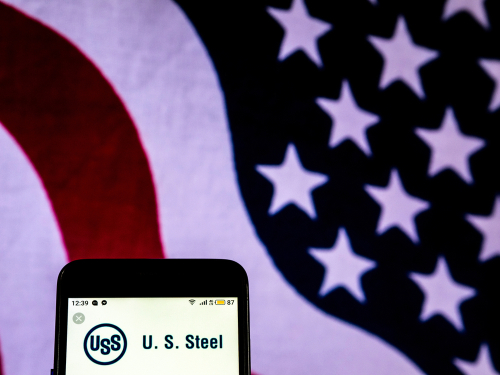
On Tuesday, U.S. Sens. JD Vance (R-OH), Josh Hawley (R-MO) and Marco Rubio (R-FL) urged the Committee on Foreign Investment in the United States (CFIUS) to block the sale of Pittsburgh-based U.S. Steel to Nippon Steel Corporation (NSC).
Nippon, based in Japan, announced Monday it had entered into an agreement to acquire US Steel in an all-cash $14.1 billion deal. The acquisition, pursuant to federal approval, would expand NSC’s global footprint and drive the steel industry toward decarbonization and sustainability, the companies said. US Steel would remain in Pittsburgh, officials said.
In a letter to Treasury Secretary Janet Yellen, who also serves as CFIUS Chair, Vance, Hawley and Rubio said the acquisition would have dire implications for the American industrial base and “not entered into with U.S. national security in mind.”
“Despite the absence of any security-focused deliberation on U.S. Steel’s part, domestic steel production is vital to U.S. national security,” the letter said. “Democratic and Republican administrations have both acted decisively over the last forty years to bolster the industry… This corporate takeover is out of step with those goals. Allowing foreign companies to buy out American companies and enjoy our trade protections subverts the very purpose for which those protections were put in place.”
Members of the Pennsylvania Congressional Delegation also opposed the sale. A separate letter, U.S. Sens. Bob Casey (D-PA) and John Fetterman (D-PA), joined U.S. Rep. Chris Deluzio (D-PA) in urging Yellen to block the proposed acquisition national security grounds.
“U.S. Steel and the steel industry are a critical part of Pennsylvania and our Nation’s core economic identity,” the delegation members wrote. “This proposed acquisition of U.S. Steel, if completed, would make a foreign-owned company a central part of the American steel industry, as well as a major employer. As you review this acquisition, we urge you to consider the national security implications of selling a company manufacturing some of our most important industries, including defense, power, and infrastructure, to a foreign company.”
David Burritt, president and CEO of U.S. Steel, said the acquisition was a good move for the company and its employees.
“NSC has a proven track record of acquiring, operating, and investing in steel mill facilities globally – and we are confident that, like our strategy, this combination is truly Best for All,” Burritt said. “This transaction realizes the tremendous value today in our company and is the result of our Board of Directors’ comprehensive and thorough strategic alternatives process. For our U.S. Steel employees, who I continue to be thankful for, the transaction combines like-minded steel companies with an unwavering focus on safety, shared goals, values, and strategies underpinned by rich histories.”
Burritt said it would also benefit customers as the two companies come together to form a global company with combined capabilities and innovation to meet evolving needs. And, he said, the acquisition would benefit the United States by ensuring a competitive domestic steel industry and strengthening U.S. Steel’s presence globally.
However, Vance, Hawley and Rubio said the transaction’s flaws outweigh its benefits.
“NSC does not share U.S. Steel’s storied connection to the United States, and its financial interests are tied into those of Japan,” their letter said. “NSC has even flouted American trade law. As recently as August 2021, NSC was found guilty of unlawfully dumping flat-rolled steel products into the U.S. market… The Committee cannot rebalance American trade or reshape its corporate governance, but it can mitigate some of the worst consequences of both. It can and should block the acquisition of U.S. Steel by NSC, a company whose allegiances clearly lie with a foreign state and whose record in the United States is deeply flawed.”
The acquisition has been approved by both of the boards of U.S. Steel and NSC. As part of the acquisition, NSC said it would honor all of the agreements between U.S. Steel and the United Steel Workers.